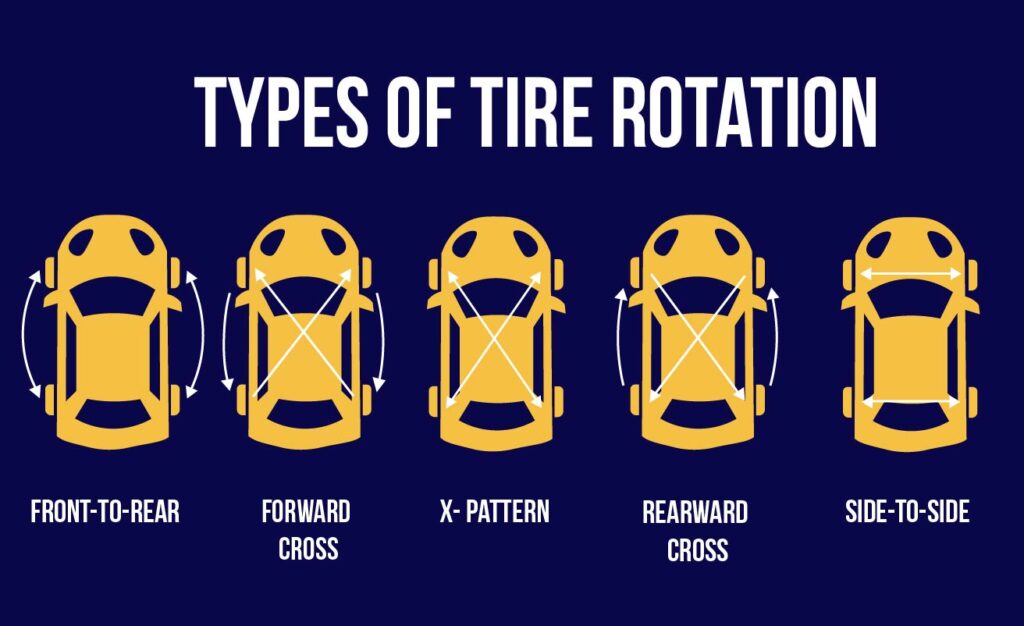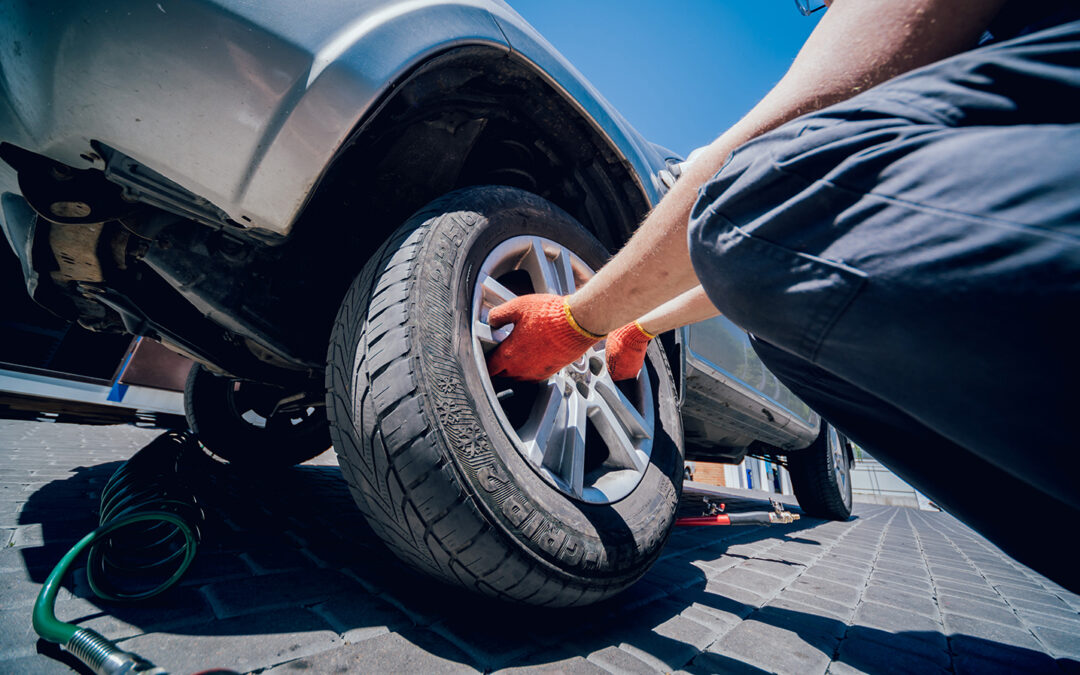Responsible car owners know how to listen to the signs that their car needs to be taken in for a checkup. While you might have been taking your car in for its routine oil change, have you been keeping an eye out for signs of other problems?
Have you noticed:
- Odd vibrations from your car?
- Uneven wear on your tires?
- Sudden dips in tire pressure?
- Your car pulling to one side?
- Inefficiency in your mileage?
If your car has been exhibiting any of these symptoms (and especially if you’ve noticed all of them), it could be a sign that your tires are due for a rotation.
What Does “Rotating Tires” Mean?
You may not be familiar with the term “rotating” when it relates to your tires. However, the concept of rotating your tires is actually very simple: It refers to the process of changing the position of your tires to avoid uneven wear patterns. Usually, this means swapping the front and rear tires. This can help extend the life of your tires by ensuring that the tread depth of all four tires remains even.
Regular tire rotations are necessary because even in the most properly maintained cars, there will be a degree of unevenness in the pressure placed on each tire. This is especially true in front-wheel-drive vehicles, as the front tires face the most pressure when turning and stopping. This leaves the tread wear on the front tires much worse, which can be resolved by moving the rear tires to the front.
How Often Should Tires Be Rotated?
Determining how often you need to rotate your tires can depend on the type of car you drive, as well as the age of the tire and the kind you have. In most cases, it’s recommended that you take your car in for rotation once you reach between 5,000 and 7,500 miles, even if you don’t notice symptoms of an issue within your car.
However, in most cases (especially if your tires are new), you should steer towards 5000 miles. New tires tend to wear down much faster than older tires, so by rotating them more frequently, you can prevent your tires from wearing down unevenly. Uneven wear can cause strain on your vehicle, potentially damaging other parts of your car.
Can I Rotate My Tires At Home?
You might be inclined to try rotating your tires at home, but bringing your car in for a rotation at a train automotive care shop is vastly superior. At a tire shop, a professional technician can detect any potential tire problems and offer the best solutions to avoid future tire failures. In some cases, if you delay a tire rotation long enough, you may even need to replace your tires entirely.
There are many different kinds of tire rotation patterns, with each offering different benefits and addressing different concerns.

The one your vehicle needs depends on a number of factors, including the type of tire and the model of your car. A trained tire technician has experience with multiple different vehicles and can determine which pattern will work best for your situation.
For Your Car Concerns, Call D & R Intensive Car Care
As a full-service auto repair establishment, D & R Car Care is your one-stop shop for any automotive issue. Whether it’s a routine oil change or tire rotation, we can help. Since 2000, we’ve valued a “service the right way, the first time” attitude.
We offer tire rotation and balancing services for those who want to keep themselves and their loved ones safe on the road. Call us today to schedule a tire rotation & alignment.






